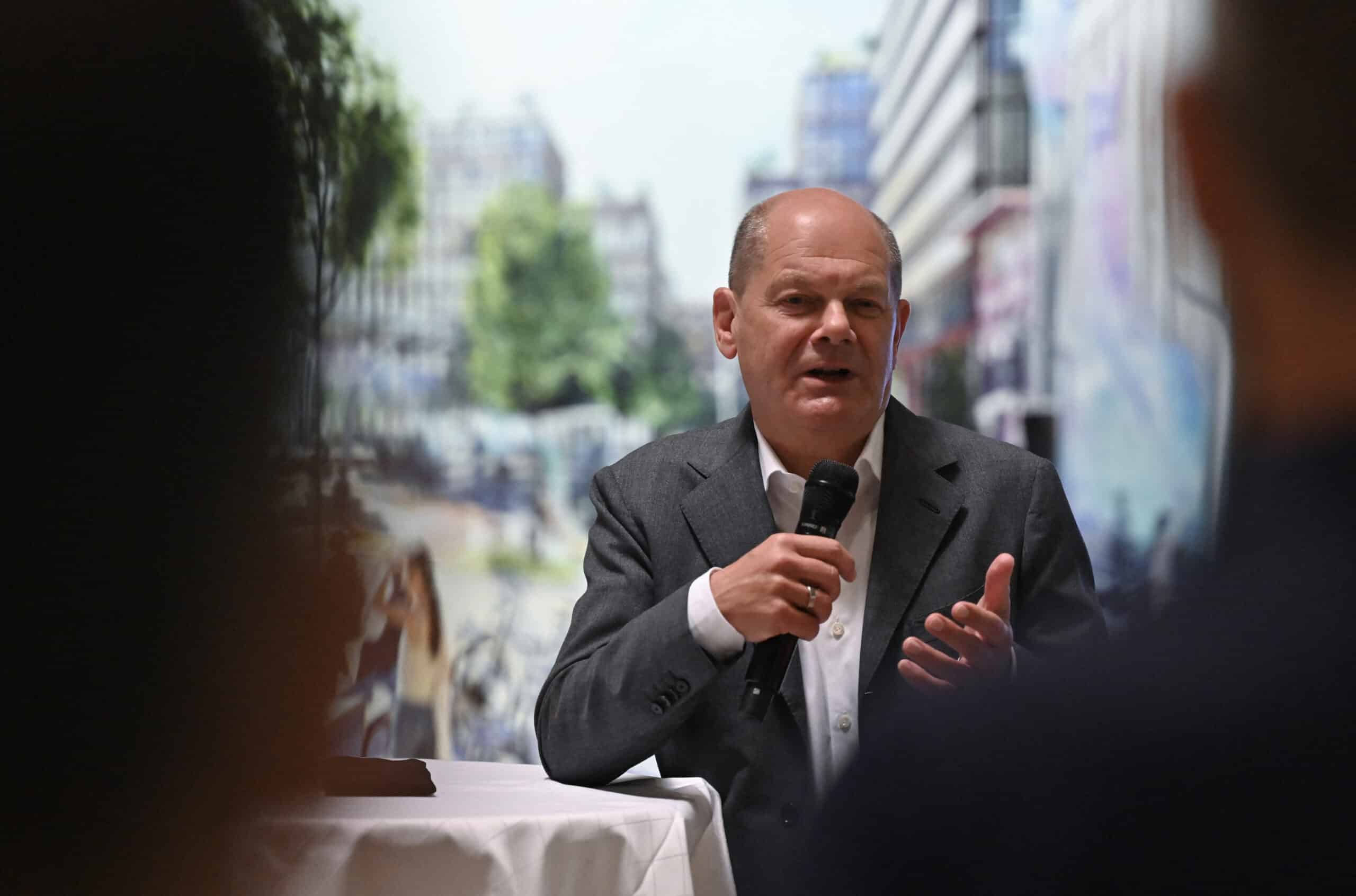German coalition strikes budget deal after crisis

German Chancellor Olaf Scholz (L) talks with employees about the new Siemens project called “Siemensstadt Square”, after the cornerstone laying ceremony in Berlin, on June 25, 2024. “Siemensstadt Square” is meant to become a sustainable place of the future on one million square meters, where new constructions complement the heritage-protected buildings, by adding spaces for production, research living and social infrastructure. (Photo by RALF HIRSCHBERGER / POOL / AFP)
Frankfurt, Germany — The three parties in Germany’s ruling coalition struck an agreement Friday on the 2025 budget after weeks of tough talks that pushed Chancellor Olaf Scholz’s government to the brink of collapse.
Scholz’s centre-left Social Democrats and their partners, the Greens and the pro-business FDP, reached a deal after a final round of haggling that started Thursday, a source close to the coalition said.
READ: German inflation slows more than expected in June
The government has faced repeated rows since taking office in 2021 but analysts feared the budget crisis, with supporters of austerity clashing with those wanting more spending, could have been the final straw.
There was relief among coalition lawmakers that the coalition had weathered the crisis intact.
Article continues after this advertisement“I think it would have been completely irresponsible in view of the world situation if the government had fallen apart now,” said Anton Hofreiter, a Green party lawmaker and chairman of the German parliament’s European affairs committee.
Article continues after this advertisementGermany has a “great responsibility” towards Europe, he added.
READ: Bundesbank expects German economy to post growth in Q2
Pressure had increased to reach a deal and avoid the coalition’s collapse after the governing parties took a hit in European Parliament elections last month, with the far-right AfD party surging to a record result.
Central to the budget row were demands from Finance Minister Christian Lindner, a fiscal hawk from the FDP, of close to 30 billion euros ($32 billion) in savings — a proposal baulked at by the Greens and SPD.
Debt rules row
Particularly contentious was Lindner’s call to make savings on benefits spending.
Lindner believed the payouts were too expensive and did not provide enough of an incentive to get people to return to work.
But the SPD was unhappy with his stance, as improving benefits was central to the party’s 2021 election campaign as they sought to win back support of lower-income voters.
Details of the deal struck Friday were not immediately disclosed.
But sources said it included an agreement to ensure the constitutionally enshrined “debt brake”, a self-imposed cap on annual borrowing, was stuck to.
The debt brake had become a key point in talks. It was suspended for several years during the coronavirus pandemic and energy shock trigged by the Ukraine war but Lindner was keen to see it reinstated.
Debate over the rules became more heated after the country’s top court ruled in November that the coalition had contravened them.
The constitutional court in Karlsruhe found that the government had broken the rule by trying to move money around special funds outside the main budget.
The court’s decision led to greater spending constraints in the 2025 budget and prompted calls for the rules to be dropped or loosened to make high-priority investments in the armed forces in the face of a growing threat from Russia and decarbonisation.
However Lindner ultimately prevailed in the row over the debt brake.
German media also reported that the defense ministry got a far smaller increase in its budget than it had sought, despite government plans to modernize the military following Russia’s invasion of Ukraine.
The budget agreement was struck against a gloomy economic backdrop, as Germany’s growth has stagnated due to high inflation and a manufacturing slowdown.
Next year’s budget was initially slated to be approved by the cabinet on Wednesday, but now looks more likely to get full ministerial approval on July 17 after the details are ironed out.